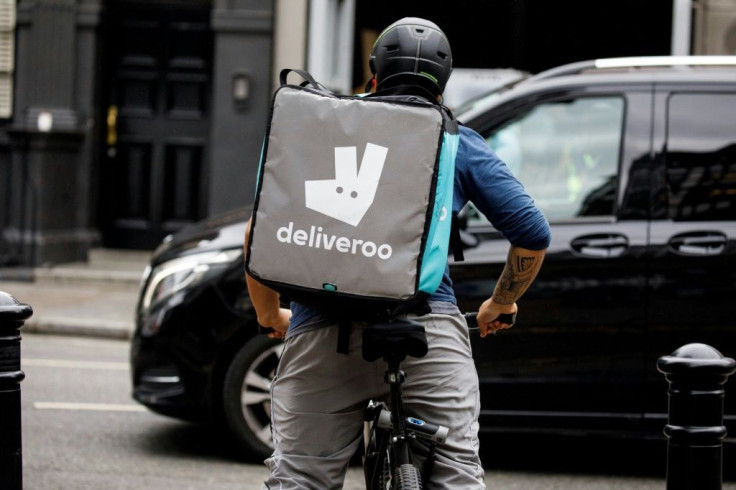Deliveroo Strikes To Precede London Share Listing
The meal delivery platform Deliveroo is bracing for strikes and other social actions by disgruntled riders as it gears up for a major London stock listing.
Tipped as possibly the biggest stock market flotation in London for a decade, the group has come under fire for employment conditions that have already scared off a couple of large institutional investors.
In Britain, where Deliveroo is based, a group of riders who are not affiliated with a trade union planned to stage a strike on Sunday.
Others who have joined the IWGB union of independent workers say they will stage an action on April 7, the day that Deliveroo shares are to be made available to small shareholders.
Large investors are to have a head start on buying the company's stock a week earlier.
The eight-year-old delivery platform hopes for a market capitalisation of between ?7.6 billion and ?8.8 billion ($10.4 -12.1 billion, 8.9-10.3 billion euros).
Deliveroo's 100,000 riders deliver meals for 115,000 restaurants in 800 cities across the world.
In France, two trade unions, the ITF and CGT, have called for Deliveroo riders to mobilise on Friday, with strike calls in Bordeaux, Lyon and Toulouse.
The international network Rights4Riders and other organisations are also planning operations, including one in Sydney, Australia.
"Deliveroo has left them little choice, subjecting them to precarity and poverty pay while refusing to enter dialogue with their union," said IWGB general secretary Henry Chango-Lopez.
Deliveroo and its rivals have come under mounting criticism for classifying its riders as independent contractors, which means they are not guaranteed a minimum number of hours, the minimum wage or benefits like sick leave and vacation time.
The firm counters that riders like the flexibility of being independent.
"Deliveroo riders are self-employed because this gives them the freedom to choose when and where to work," the company said in a statement.

"Riders in the UK are paid for each delivery they choose to complete and earn ?13 per hour on average at our busiest times," it added.
But the IWGB published Thursday a study by the Bureau of Investigative Journalism that showed riders receive less pay than Deliveroo says.
The company claims they receive more than ?10 an hour on average in Britain, whereas the study that analysed thousands of documents found it was less, and in some cases below the minimum wage of ?8.72.
In one case, a rider in Yorkshire, northern England, worked 180 hours for the equivalent of two pounds an hour.
The IWGB's Chango-Lopez said that Deliveroo harms Britain's reputation and warned potential investors to weigh the risks before buying shares in the company.
One such risk is that Deliveroo could be forced to reclassify its "self-employed" riders as workers.
That just happened for ride-hailing app Uber, whose drivers won a favourable ruling from Britain's Supreme Court.
But Deliveroo said: "We are confident in our business model, which has been upheld by UK courts three times, including the High Court twice."
Deliveroo riders are also waiting for the London appeals court to rule on whether they qualify for a collective bargaining status that would help improve work conditions.
Meanwhile, Aberdeen Standard and Aviva Investors, two large investment funds, have said they will not take part in the share listing because of Deliveroo's social policies.
"Deliveroo is facing a bumpier road ahead of its IPO," said Neil Wilson at Markets.com.
In addition to concerns about the working conditions of riders, Wilson said the asset managers also question Deliveroo's financial prospects.
"Growth has been exceptional -- thank the pandemic -- but it couldn't serve up a profit despite last year's 50 percent rise in revenues," he noted.
With intense competition from rivals, the firm may not turn a profit for years, Wilson warned.
© Copyright AFP 2024. All rights reserved.




















